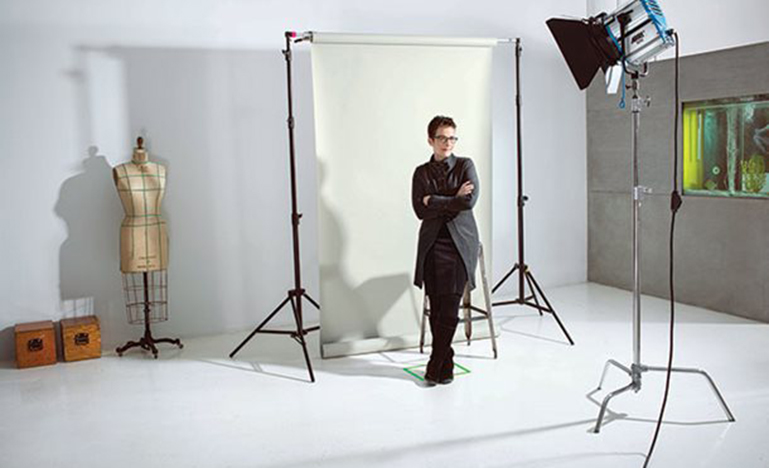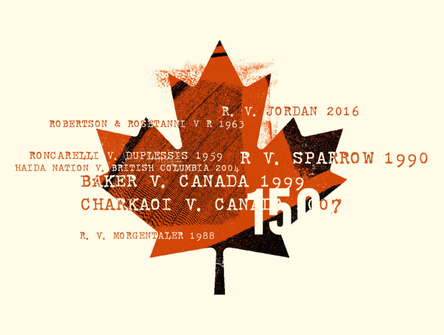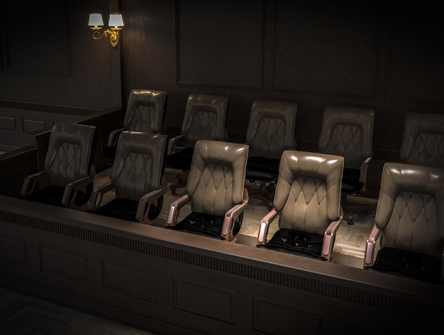Shaking up the Academy
It’s time legal education reflected the reality of today’s marketplace.

Canadian law schools are suffering from an existential crisis.
The prospective lawyers emerging from their hallowed halls are unprepared for a profession in flux, critics argue. It’s a new world out there: Billable hours and traditional large firms are giving way to new business structures, law is becoming increasingly globalized, and entrepreneurs are creating new ways to deliver cost-effective and flexible legal services.
Meanwhile, law schools are struggling to reconcile the contradictions and tensions inherent in a cobbled-together educational mandate. They find it increasingly tough to defend high tuition fees and higher expectations. And they remain mired in a debate about the true mission of a legal education, and its role in society.
That debate isn’t new. In 1949, Dean Cecil Wright broke with Osgoode Hall Law School after the Law Society of Upper Canada insisted upon a practical course on lawyering. (Wright, who believed legal education should be intellectually rigorous and focus on legal principles, left and went on to found the Faculty of Law at University of Toronto with three colleagues.) But the need to re-evaluate legal education has acquired a sense of urgency in today’s rapidly changing legal marketplace.
In fact, 66 years later, the lack of vocational preparation is one of the key complaints of critics and some students. “It’s almost shameful the number of people that graduate from law school that are afraid of Microsoft Excel,” says Douglas Judson, a recent Osgoode Hall graduate. “At the end of the day, when people are waging the war against the billable hour, I think that clients want to see that you’re able to do your work, to perform your service for them in the most competent, but also the most efficient way available to you.”
The technology infiltrating even the most paper-bound law offices is one of the harbingers of change in legal practice. Clients want legal services to be more affordable and easier to access and now routine work can be outsourced or automated. Instead of hiring a lawyer to do basic legal research or write up a boilerplate contract, clients can find online law libraries, web services and apps to do the job for free – or on the cheap.
So are law schools adapting to this changing landscape?
Jordan Furlong, an Ottawa-based lawyer, analyst and consultant, doesn’t think so. “[Students] want a competitive set of skills and knowledge, tools and experience with which they can compete for employment in the legal field,” he says. “I think that’s the business law schools are in. I think few law schools and very few professors realize that, or would acknowledge that.”
Students are the “paying customers,” Furlong points out, so legal education ought to be focused on their needs. “What will serve their best interests given their goals?” he asks. A more effective approach, he suggests, would be if law schools “worked backward from students’ post-graduation goals, using that to rethink their own offerings and their own operations.”
The CBA Legal Futures Initiative also found legal education needs a rethink. The report recommends a practical approach that incorporates multidisciplinary skills training so students have the ability to turn “critical knowledge of legal concepts, regulatory processes and legal culture into actual problem-solving ability in practice.”
Practitioners representing different segments of the profession told researchers that graduates need more than just a solid background in traditional legal theory and substantive law to succeed. Their future colleagues need technical literacy, financial acumen, communication and business development skills, emotional intelligence, and cultural competency among other things. Practical learning opportunities such as work and clinical placements could help them be better prepared, the report adds.
Right now, most students graduate with little knowledge of the business of law – and that’s going to hurt down the road. “You’ve got much more responsibility for your own financial success, your own profitability, your own productivity,” says Furlong, who has prepared a skills guide for students and young lawyers (see sidebar).
“These skills are absolutely necessary now, whereas they didn’t used to be in the past. You could run a practice with everything in paper files, and filing cabinets, and so forth; those days are done. It’s more complex, it’s more competitive, and it’s much more challenging.”
Classroom innovators
Law schools are famous for shoving mountains of doctrinal black letter law into the over-stuffed brains of dozing students. But some educators who recognize the need for a more practical approach are trading the “data dump” for more engaging methods.
For example, Craig Forcese, an associate professor and researcher in national security law at the University of Ottawa, has largely ditched the standard lecture; he says it made sense when professors had “a virtual monopoly on legal knowledge, and students had relatively scant resources to discover it themselves.” Now, he’s experimenting with more active forms of teaching – even with a class of 80 students.
Students are expected to watch a video recording of Forcese’s standard lecture then participate in a practical, skills-based session. Classes are filled with discussion and micro-assignments where students can apply their knowledge to short, bite-sized tasks. “That’s all possible to do even in a big classroom, because with the technological tools – whether it’s just simple stuff like Gmail and Google Docs or the more sophisticated stuff like Blackboard Learn – you get economies of scale in a way that weren’t possible before,” he explains.
And if you sign up for his administrative law class, expect emails in the middle of the night. “We do a lot of role-play,” Forcese says. “I play the role of a senior partner: ‘Hi, I’m in Hong Kong. Tomorrow at our session, we need to talk about ‘X’. Come prepared.’”
Over at Osgoode Hall Law School, Dean Lorne Sossin is a true believer in the value of “experiential,” hands-on forms of teaching. “I am struck as I meet alumni … how many more recall the learning experience from clinical or intensive programs or mooting or community pro bono projects – all outside the classroom,” he says. ”I have not come across a course yet that could not be enhanced by experiential elements.”
One of the country’s newest law schools is also starting to embrace non-traditional approaches to learning. Professor Katie Sykes runs a program called Law Hacks at Thompson Rivers University in Kamloops, B.C. She asks students to develop innovative ideas and forward-thinking solutions to meet legal needs. Some are technology-based; others are as simple as proposing articling programs in remote communities. Like Craig Forcese, Sykes uses role-play — students become partners in a fictional law firm, and gain experience with practical legal problem-solving.
Sykes recognizes the value of these alternative teaching methods, but realizes she’s working at the fringes of the law curriculum. “It’s cool and different,” she says, “but that’s not going to achieve as much as a redesigned curriculum.” She believes a wholesale revamping of the curriculum would meet serious resistance, however, “because it would involve telling people what to do.”
Core competencies
Since 2015, graduates of Canadian common law programs have had to possess certain competencies in order to enter law society admission programs. The National Requirement, set out by the Federation of Law Societies of Canada, also establishes criteria for assessing whether an LL.B or J.D. degree from a Canadian law school meets the competency requirements.
The four-page document could have been written in the 1950s: Required competencies include problem-solving, legal research skills, oral and written legal communication skills and an understanding of the principles of legal ethics and professionalism. Students also must have substantive legal knowledge in the foundations of law, public law and principles of private law.
It begs the question: Is this a testament to the enduring success of a classical legal education, or an outdated vision from earlier, simpler times?
Professor Annie Rochette, president of the Canadian Association of Law Teachers, leans toward the latter view. In fact, she says, the competencies are not what are commonly understood as competencies at all.
“They’re just a set of standard law areas, or basically a list of courses,” she says. The document, she adds is “reflective of what law schools have been doing forever.” There’s not even a nod to the changing nature of the legal profession.
Rochette, who teaches at the Université du Québec à Montreal, believes the Federation should require “real” competencies – “not just knowledge, but what we do with the knowledge.” She thinks students should be required to develop interpersonal skills, negotiation and management skills and, generally higher level critical thinking – the application, synthesis and evaluation of legal knowledge, areas that she finds lacking in schools across the country.
As someone who has studied the form and content of law teaching in nine law faculties across four different provinces, she is mainly concerned about the failure to think about student education in terms of “student learning.”
“If we just flipped things around to look at learning, not just teaching, things might look a little different,” she says. “Then we might be able to measure if students have learned such and such a skill. There’s not a lot of measurement going on, on the systemic level.”
The Federation is responding to the new reality by taking a second look at the competencies and whether they should be expanded. A blue-chip committee’s first order of business is to examine how the approval committee operates, says outgoing president Tom Conway.
“Does the regime need to be adjusted? Are there small tweaks that can be made to encourage dialogue?” he said in an interview. And secondly: “Do we need to be rethinking these competencies? Do we need to have a more expansive dialogue about what lawyers in practice need in 2015 and beyond?”
The committee will be mandated “to examine the future of legal education and take a close look at the kinds of knowledge that students need to have coming out of common law degree programs,” Conway says, pointing as an example to two recommendations from the Truth and Reconciliation Report asking the Federation to ensure that aboriginal legal issues and aboriginal cultural sensitivities are integrated into the legal curriculum.
Annie Rochette would like to see the Federation identify the real needs of the profession and empirically define what competencies are necessary. It should be followed, she says, by a wide consultation with the profession. “Dialogue between the Federation and law schools is essential – then seeing how we can build on these competencies. What can we do at law school that will be built upon and underpinned in continuing education?”
Other observers, including Lorne Sossin, worry the Federation is struggling in its approach to the issue. “They’re looking in a static way at the problem,” he says. “They’re very focused on where is the puck, and how do we construct a rink around it, rather than where is it going, and how we can adapt.”
A laboratory for justice
Law schools don’t simply offer instruction; professors are expected to spend just as much time on academic research which drives tenure and promotion prospects. It’s a system that creates stress for professors and potential resentment from students who might wonder whether their hard-borrowed dollars are supporting research on obscure topics that have little bearing on current legal, social or political issues.
“Teaching is a subordinate consideration [for promotion]”, Forcese says. “Basically, the only concern is you’re not screwing up completely. But if you’re an incredibly good teacher, but an unproductive researcher, your tenure prospects are remote.”
He describes his colleagues as “passionate teachers,” but the emphasis on research means “you end up with a lot of people who are feeling extremely anxious about the fact that they’re focused on their teaching and they’re not producing articles, so it creates an element of stress and uncertainty.”
Sossin accepts that academia needs to justify its own existence, but adds a caveat. “People want to ensure a relevance and responsiveness in a law school – but not at the expense of being able to be a laboratory for the justice system, where new ideas are considered and disseminated. So I don’t think tenure is something we should take for granted.”
Part of a university and a law school’s mission, he adds, is the generation of new ideas and critical reflection on our existing system: “I really don’t think there is a better model to nurture that than academic freedom and the use of tenure.”
The Canadian university system also protects its public service ethos and broader educational philosophy, unlike some private U.S. law schools, which can cheerfully focus on providing a vocational training course, preferably with fat profit margins.
Douglas Judson saw a strong social justice “fibre” at Osgoode Hall: “I think that people are very much in tune with those issues at law school, perhaps more so than they are in a lot of other places.” Indeed, the school is the first to have a mandatory public interest requirement, drawing community-oriented law closer to the core of their J.D. curriculum.
And teaching “innovation” is another way to engage students with the pressing issue of access to justice, and to support the drive toward cheaper, more accessible legal services. For Jordan Furlong, whether or not students are interested in working in underserved communities, or pro-bono clinic work, “everyone is interested in running as streamlined and as cost-effective a business as they possibly can – because other people out there are going to be doing it and they’re going to be able to charge less for the same work that you do.”
But high tuition can thwart public service ambitions and the drive to set up shop offering affordable services. Sarah Buhler, an associate law professor at the University of Saskatchewan, thinks the rising cost of tuition has had a direct impact on access to justice.
“Students are graduating with massive student debt,” she says, “and will have a difficult time pursuing public interest careers. They’re under pressure to find jobs where they can pay off these debts… It also means that students who come from less privileged backgrounds may be discouraged from ever seeking legal education in the first place.”
While fees for some schools have gone through the roof (U of T now charges more than $33,000 per year), there are some attempts to mitigate the problem. In Manitoba, graduates who work in underserved communities can apply to have 20 per cent of their debt forgiven for every year served in a remote community. Osgoode Hall allows graduates to delay the repayment of loans if they are earning a low salary. But the issue of high tuition remains – and there are no answers in sight.
A middle way?
The question remains: Who or what should law schools serve?
Students expect their degrees and programs to give them the best possible leg up on the career ladder. The profession has its own ideas about what it needs and wants from new graduates. There is little consensus and no cohesive vision, however, about the future of legal education.
Meanwhile, schools have an eye on the public interest and the needs of the broader judicial system. Many academics, who prize being part of an intellectually rigorous tradition, like to prioritize the public interest and think beyond practical or vocational training.
In fact, law schools must serve all three masters: students, the profession and the public interest.
Already, a new breed of practically minded law professors accepts the need for a more balanced curriculum. Katie Sykes is concerned that after three years of expensive education, graduates are still not ready to practise law: “I think that’s really a problem and I think that’s unfair,” she says.
Sykes wants her students to be able to adapt to 21st-century law practice: “I have huge respect for academic freedom and I like it very much, but I think that part of the cost of academic freedom is that we do not do a great job of responding to that need.”
It’s understandable that schools are fiercely protective of their academic traditions and freedoms, and are fearful that law schools might turn into overpriced trade schools.
But there is a middle way. Tom Conway sees a “shift in thinking” and is optimistic that the profession and the law schools can work together. He believes a new generation of academics are more willing to co-operate with law societies in their regulatory function, and are less afraid of losing autonomy as academics.
“Increasingly,” he says,“regulators and academics have a much better dialogue about what is, after all, in our mutual interest – the education and training of lawyers.”
Practically speaking
The CBA Legal Futures Initiative has heard recurring complaints from both young and older lawyers about the lack of practical education available at law schools.
Law school graduates don’t know how to run a law office or what other career options are available if day-to-day practice doesn’t appeal once they get a taste of it; older lawyers who’ve found their footing regret the time they had to spend climbing the steep learning curve.
So Futures partnered with consultant Jordan Furlong to create a practical guide for students and new lawyers. Do Law Differently: Futures for Young Lawyers brings together information about the challenges facing the profession; skills that prospective lawyers will need to know in order to succeed; interviews with people who are taking an entrepreneurial approach to the practise of law; and information resources. The online guide is available exclusively to members.
Young lawyers are also invited to visit our Do Law Differently Facebook page to find related video, podcasts and articles, and encouraged to join in the conversation there about the changing needs of the profession. Ideally, the ideas generated there will help form the basis for a second edition of the guide, which will evolve along with them. –CBA National
Legal training: Success at every stage
The CBA’s Legal Futures Initiative and the Canadian Bar Review hosted a symposium on March 4, called Transforming Legal Education and Training in Canada: Learning Across Life Stages. Participating authors were invited to submit their articles for publication in the Canadian Bar Review. Watch for the special edition of the Review in Spring 2017.


